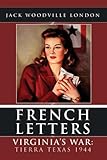



RSS: Blog FeedSubscribe to
Comments [Atom]
April 2007May 2007June 2007July 2007August 2007September 2007October 2007November 2007December 2007January 2008February 2008April 2008May 2008July 2008September 2008October 2008November 2008December 2008January 2009February 2009March 2009April 2009May 2009June 2009July 2009August 2009September 2009December 2009May 2010October 2010March 2011
History Buff is a site
for history lovers everywhere. It is also a site very interested in women
of the past. Although I (sadly) no longer have time to continue these interviews, here is an archive of Q&As about women's lives
in history. And please feel free to stop by History Buff's
sister site for archaeological discoveries making news today. Enjoy!

As an
historical fiction writer I am fascinated by news stories featuring the
past as it's unearthed and reimagined and brought to life. I spend a
large quantity of time searching for news in archaeology and history.
Once in a great while a new archaeological discovery will act as an inspiration
for what I'm currently writing. But most of the time the news stories
I read are simply interesting tidbits of history. Unfortunately, I have
disallowed comments because I travel so frequently that I can neither
monitor nor respond to them. But I would still love to share the history
that I find fascinating each day. So welcome! And feel free to visit my
website at www.michellemoran.com
or contact me at authormichellemoran at hotmail dot com.
Logo designed by Shaun Venish
Blog designed by Mia Pearlman Design
Q&A With Historical Fiction Author Jack Woodville London

It is said that men who fought in WWII never talk about their experiences; it certainly seemed to me that we didn’t hear a lot from the women who were caught up in that whirlwind either. Now, just as we are losing both the men and the women of that era at a rate faster than the war killed them, it is important that we not forget them. They endured rationing, separation, and wildly off-base expectations, such as winning the war and remaining chaste. Do we really know who our parents cared about before they married each other, what became of them, and, in the end, how we came to be who we are?
As for the small town, the icon of the home-front is Rosie the Riveter; the fact is that the US was still very rural and, except for those in the military or those who moved to work in the war factories, most Americans still had not traveled more than 50 miles from home. Very few rural Americans became Rosie the Riveter.
Your novel, French Letters -- Virginia’s War: Tierra Texas 1944, is set Stateside during the war. How did you research WWII Texas?
There is a tremendous amount of pure information about the Office of Price Administration (rationing), aircraft factories, military air fields, crops, census, that sort of thing in the source records. The color of ration stamps for what foods or goods, wooden sidewalks, what was on the grocery store shelves and what kind of medical treatment an old-school doctor could provide in the 1940’s, the text of the announcement broadcast in the middle of the night about the invasion of
But the people – that required hard work, to get the sense of how they spoke to and about one another, slang, their daily lives – that took work. I spoke with dozens of people who grew up in that era and in small towns, looked at photographs and read snippets of their letters and four-page newspapers.
How much of the novel is based on fact and how much on fiction?
Tierra is fictitious. Virginia, Will, Poppy, all of the people are fictitious. Their stories in the novel are fictitious. But, the background to their lives and their town graded out with early readers as close to one hundred per cent factual. If in the novel a certain color ration stamp was sought for a certain food at a certain date, it is correct. Passing references to events such as freakish rainstorms, the kind of planes that flew from air bases in
Tell us something surprising about the American young women that our soliders left behind during WWII?
One of the most disgraceful things a girl could do in a small town, worse even than rumored un-chastity, was to send a Dear John letter. It was expected that all girls were good girls who would wait for the soldiers they sent off to war. The fact is before they were our mothers and grandmothers, they were us. They had the same passions, inexperience, uncertainty, and naughtiness that we had when we were teens and twenties. They did not have the freedom we had – unequal pay, peremptory dismissal to give a man the same job, an expectation that a man was the head of the family and not to be challenged, and a very unequal set of rules for intimacy. There were no birth control pills and it was hard to argue that contraceptives were for anything other than sin. Even so, the soldiers who sowed a statistically staggering amount of wild oats, particularly in
What are you working on next?
Virginia’s War is the novel of a young woman who was expected to wait for her soldier, Will, who was sent off as an army doctor to the war in







